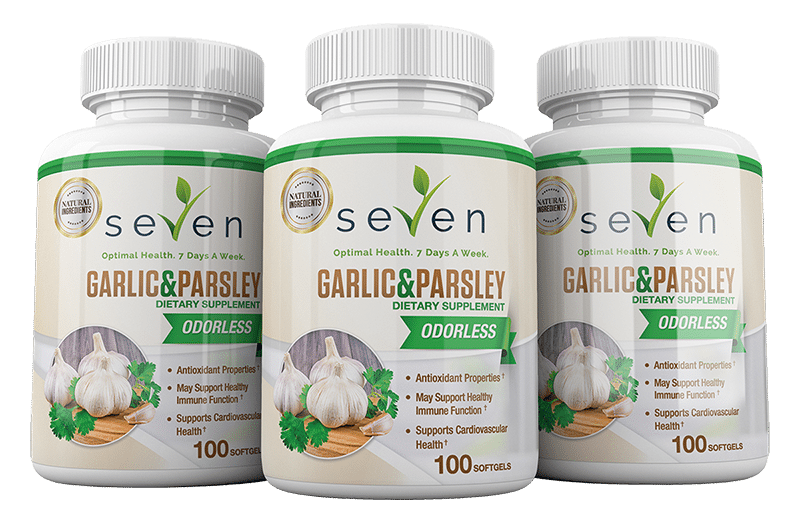Eating the right food is essential to your good health. We all know that, and yet sometimes we resort to eating processed or fast food because it’s convenient. What you may not know is that some of the things in your spice rack can add essential nutrients to your diet – and provide health benefits to you. Here are 9 to try. #1: Dried red pepper flakes Red pepper flakes add a spicy kick to foods. What you might not know is that they also have anti-inflammatory properties. The chemical that gives red pepper flakes their heat is called capsaicin. There have been multiple studies that examined its health benefits. Its power to fight inflammation makes it a potential treatment for inflammatory diseases like arthritis, and even cancer. #2: Nutmeg Nutmeg is both sweet and spicy at the same time. It’s a common ingredient in cookies and cakes, but it can be used in savory dishes as well. Research shows that nutmeg has anti-bacterial qualities strong enough to help combat infections like E. coli and listeria. #3: Cinnamon Cinnamon’s sweetness and warmth make it a frequent ingredient in sweet baked treats as well as in savory dishes. What you may not know is that cinnamon is very beneficial to people with certain conditions. For example, research shows that cinnamon helps regulate blood glucose levels and cholesterol levels, and it has been found to be effective at controlling Type 2 Diabetes. [Flashsale] Organic Ceylon Cinnamon as Low as $11.66 per bottle + FREE SHIPPING>>> #4: Ginger Like cinnamon and nutmeg, ginger has a sweetness to it that makes it ideal for desserts. It’s also frequently used in Asian cooking. Ginger has been used as a home remedy for nausea for centuries. Research now confirms that it is an effective treatment to relieve nausea and vomiting caused by early pregnancy. #5: Peppermint The sharp freshness of peppermint is often combined with chocolate to make desserts, and it’s also a popular ingredient in herbal teas. Like ginger, peppermint has long been used as a home remedy for stomach issues. Now, research shows that peppermint can be used to alleviate the symptoms of Irritable Bowel Syndrome. #6: Turmeric Turmeric has a warm, earthy flavor, and is often used in Indian cuisine. Its bright yellow color can be seen in curry powder and other spice blends. Curcumin is the healthy compound in turmeric. It’s one of the most powerful, natural anti-inflammatories in the world. Research has found that it may be beneficial for patients with cancer, even those in the late stages of the disease. [FREE Health Report] The Turmeric Report: “17 Powerful Benefits and Why You Should Take This Now…”>>> #7: Sage Sage adds a fresh, herbal note to your Thanksgiving stuffing, and goes well with many savory dishes. The fresh leaves and dried leaves are both widely available. What you may not know is that sage has medicinal properties, too. For example, one study found that sage could be beneficial to patients with Alzheimer’s disease. #8: Garlic Garlic has a unique flavor that makes it popular around the world. It’s commonly used as a flavoring in sauces and soups, but it can also be roasted and eaten whole. One of the most exciting health benefits of garlic is the effect it has on cancer cell growth. Allicin, a compound in garlic, was found to have an anti-proliferative effect on cancer cells. Suggestion: Try our Garlic & Parsley Extract Daily Supplement… You get all of the great health benefits of garlic without any of the bad breath! #9: Cumin Cumin is an earthy herb that is often found in Mexican and Asian cooking. It’s most commonly used in its ground form, but the seeds are sometimes used whole, too. Research shows that the oil in black cumin seeds has anti-inflammatory properties. Specifically, it has been found to be beneficial in relieving the inflammation associated with rheumatoid arthritis. Conclusion Adding these 9 herbs and spices to your diet can help improve your health. And, it doesn’t hurt that they can make your food taste better, too! References: https://www.sciencedirect.com/science/article/pii/S0898656802000864 https://www.sciencedirect.com/science/article/pii/S1389172302801700 http://clincancerres.aacrjournals.org/content/14/14/4491.short http://care.diabetesjournals.org/content/26/12/3215.short https://journals.lww.com/greenjournal/Fulltext/2001/04000/Ginger_for_Nausea_and_Vomiting_in_Pregnancy_.17.aspx https://www.sciencedirect.com/science/article/pii/S1590865807000618 https://onlinelibrary.wiley.com/doi/abs/10.1211/0022357011777846 https://www.tandfonline.com/doi/abs/10.1207/S15327914NC382_14 https://onlinelibrary.wiley.com/doi/abs/10.1002/ptr.1390
